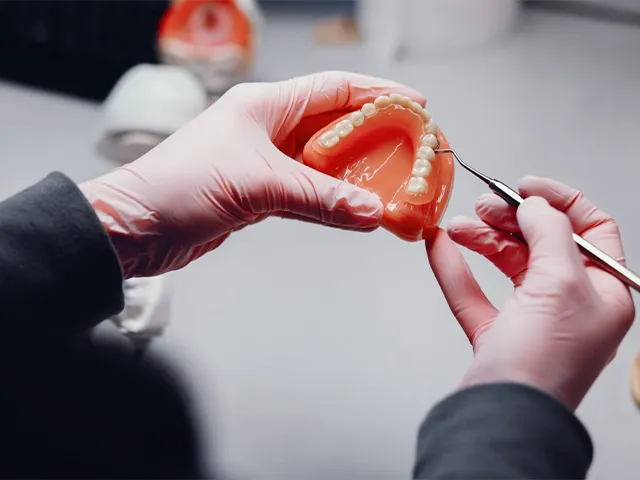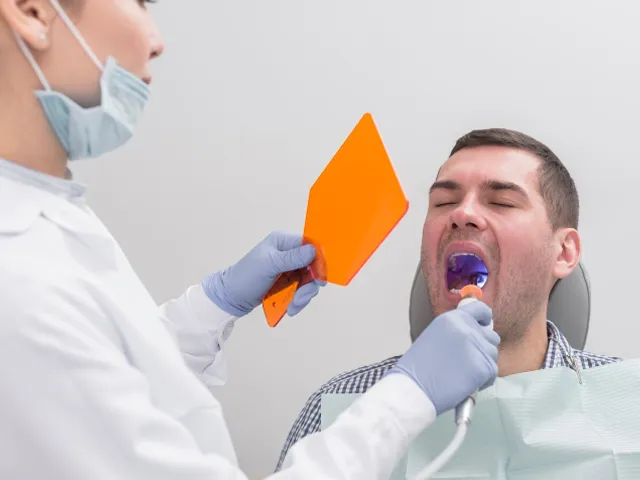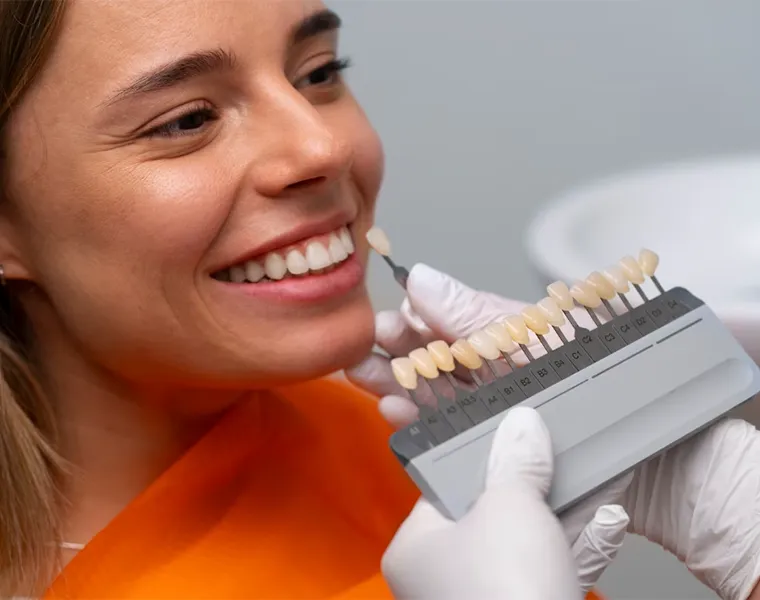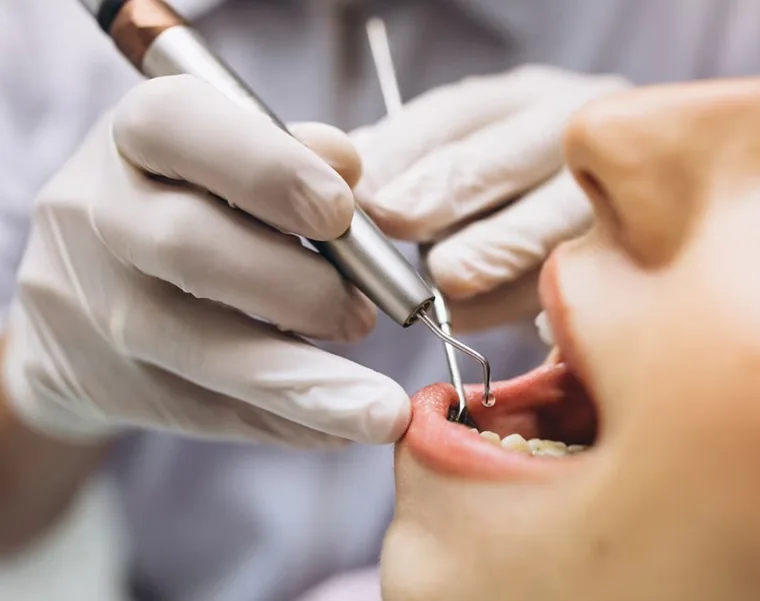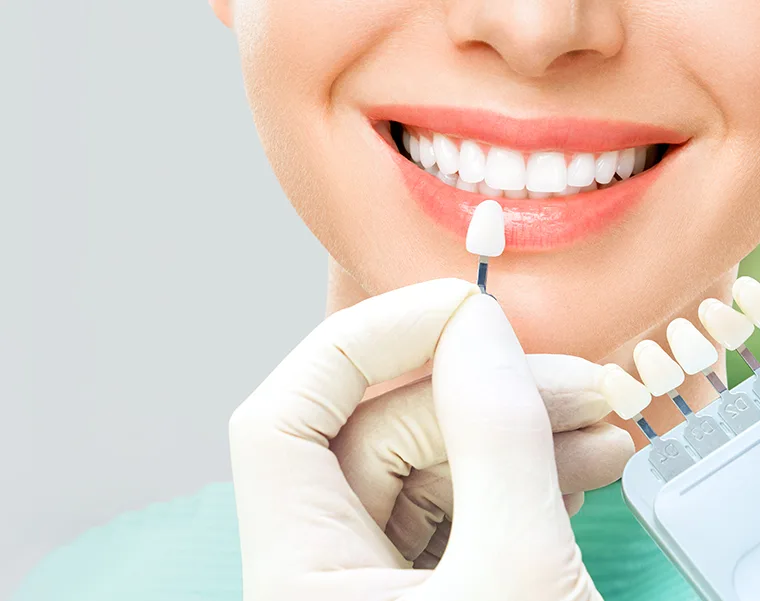Gum swelling is a common condition encountered among oral and dental health problems. It usually manifests itself with pain, redness, and sometimes bleeding in the gums. There can be many reasons for this issue, and the treatment method varies according to the underlying causes.
Gum swelling, the gums appear redder and more swollen than normal. The swelling may be more pronounced in the areas where the gums wrap around the teeth. Additionally, swelling can be observed along the gum line or between the teeth. Swelling usually causes pain or discomfort, especially when the gums are touched, during eating, or when in contact with hot and cold foods.
What Causes Gum Swelling?
Swelling in the gums is a common symptom of oral and dental health issues and can manifest in several different ways. Those experiencing a gum problem often seek answers to the question, “What causes gum swelling?” Another question that seeks an answer is, “Which disease is indicated by gum swelling?” There are many possible answers to these questions. The most common causes of this problem can be summarized as follows:
Dental Plaque and Tartar Accumulation: Dental plaque is a sticky layer formed by the combination of bacteria, food remnants, and saliva. If not cleaned regularly, plaque can turn into tartar and lead to gum inflammation.
Gingivitis and Periodontitis: Gingivitis is a periodontal (gum) disease characterized by inflammation of the gums. If untreated, it can progress to a condition known as gum recession or periodontitis. Periodontitis is a serious infection that affects the gums, the bone supporting the teeth, and other structures.
Incorrect Tooth Brushing Techniques: Brushing too hard or using incorrect tooth brushing techniques can also damage the gums and lead to swelling.
Nutritional Deficiencies: A deficiency in essential nutrients, especially Vitamin C, can negatively affect gum health.
Hormonal Changes: Pregnancy, puberty, menopause, and other hormonal changes can lead to gum problems.
Tobacco Products: The use of cigarettes and tobacco can contribute to the development of gum diseases.

How Does Gum Swelling Go Away?
To know how to reduce swelling, it’s important to understand the cause. To answer the question, “Why does gum pain occur?” it’s necessary to first manage the swelling because when the gums swell, one may experience pain or sensitivity. The intensity of the pain can vary depending on the cause and severity of the problem. Healthy gums are pink in color. When swelling occurs, the gums turn red and can take on a darker color. Also, swelling can be observed along the gum line or between the teeth. Bleeding may occur when brushing the teeth or using dental floss.
Swelling usually occurs due to dental infection and there are various ways to address it. Primarily, oral and dental hygiene is of great importance. Regular tooth brushing and mouthwash are key to maintaining gum health and treating existing problems. Additionally, plaque and tartar cleaning performed regularly by a dentist is important in preventing inflammation. If there is a bacterial infection, antibiotic treatment may be required. In more advanced cases, especially for gum recession treatment, surgical intervention may be necessary.
When experiencing swelling, it’s important to identify the underlying cause and receive appropriate treatment from a dentist. Early intervention can prevent the condition from turning into more serious problems and can alleviate pain and discomfort.

Swelling in the Back Gums
Swelling in the back teeth, similar to other teeth, can often be due to bacterial infections. These swellings, typically caused by dental infection, can lead to tooth pain or gum pain. Problems such as gum swelling or palate swelling can be resolved with medication treatments. However, the risk of gum cancer, which may present similar symptoms, necessitates prompt diagnosis and treatment of the problem. Simple preventive measures can be taken to minimize all these risks.
To maintain gum health and prevent gum diseases, the following steps can be taken:
Regular Tooth Brushing and Dental Floss Usage: It’s important to brush teeth at least twice a day and use dental floss daily.
Regular Dental Visits: Visiting the dentist at least twice a year for professional cleaning and check-ups can facilitate the early diagnosis of potential problems.
Healthy Nutrition: A healthy and balanced diet is important for oral and dental health. Avoiding sugary and acidic foods can also help prevent cavities and gum diseases.
Avoiding Tobacco Products: Quitting smoking and other tobacco products has a positive effect on gum health.
Swollen gums can sometimes be a sign of more serious health problems. Paying attention to gum health and consulting a dentist at the first sign of any issue is important. For all your inquiries on the subject, you can reach out to Libredent.

